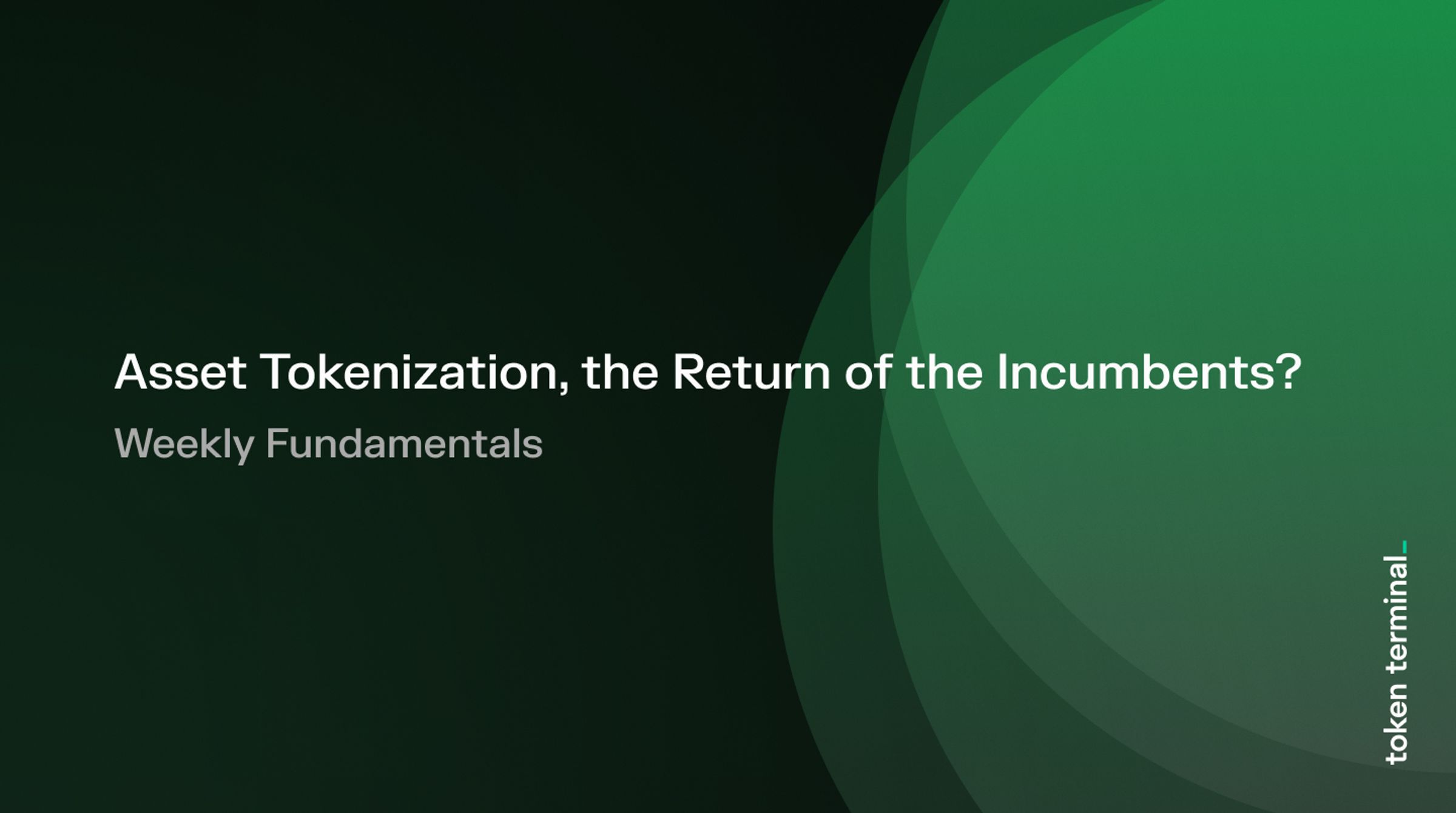Interview
MakerDAO SES – Removing barriers between decentralized workforce, capital, and work | Fundamentals ep.50

In this episode of the Fundamentals podcast, we're joined by Wouter Kampmann, Co-Founder at MakerDAO Sustainable Ecosystem Scaling (SES) – a Core Unit that focuses on sustainably growing the Maker Protocol’s moats by removing barriers between decentralized workforce, capital, and work – to discuss the basics of Maker and the SES Core Unit.
MakerDAO's dashboard on Token Terminal: https://tokenterminal.com/terminal/projects/makerdao
Listen to the episode:
Timestamps:
00:00 Introduction
00:55 MakerDAO and the DAI stablecoin
03:03 What are Core Units?
03:33 The Sustainable Ecosystem Scaling Core Unit
04:40 The expenses dashboard & its purpose
07:05 How is MakerDAO structured as an on-chain organization?
09:42 Overview of the different Core Units & what they do
12:45 How are the budgets for Core Units determined?
15:30 How have budgets and headcount developed over time?
17:06 Overview of Core Unit expense reports
19:42 Forecast & MKR Vesting -tabs
21:20 Auditor cycle – quality control and auditing of expense reports
24:40 What’s next for MakerDAO?
The authors of this content, or members, affiliates, or stakeholders of Token Terminal may be participating or are invested in protocols or tokens mentioned herein. The foregoing statement acts as a disclosure of potential conflicts of interest and is not a recommendation to purchase or invest in any token or participate in any protocol. Token Terminal does not recommend any particular course of action in relation to any token or protocol. The content herein is meant purely for educational and informational purposes only, and should not be relied upon as financial, investment, legal, tax or any other professional or other advice. None of the content and information herein is presented to induce or to attempt to induce any reader or other person to buy, sell or hold any token or participate in any protocol or enter into, or offer to enter into, any agreement for or with a view to buying or selling any token or participating in any protocol. Statements made herein (including statements of opinion, if any) are wholly generic and not tailored to take into account the personal needs and unique circumstances of any reader or any other person. Readers are strongly urged to exercise caution and have regard to their own personal needs and circumstances before making any decision to buy or sell any token or participate in any protocol. Observations and views expressed herein may be changed by Token Terminal at any time without notice. Token Terminal accepts no liability whatsoever for any losses or liabilities arising from the use of or reliance on any of this content.
Stay in the loop
Join our mailing list to get the latest insights!
Continue reading
- Uniswap’s Multichain Expansion Is Ethereum-Aligned

Uniswap’s Multichain Expansion Is Ethereum-Aligned
This week’s newsletter visualizes Uniswap’s growth and expansion from a single-chain to a multichain DEX. We go through Uniswap’s key financial and usage metrics, and break down the aggregate figures by chain. The chain-level datasets on Token Terminal offer valuable depth to the analysis of individual projects.
- Changelog #003

Changelog #003
This week, the team has been hard at work shipping updates to our Bloomberg Terminal app, fixing bugs, and plenty of background work on data migrations and more!
- Asset Tokenization, the Return of the Incumbents?

Asset Tokenization, the Return of the Incumbents?
This week’s newsletter focuses on asset tokenization and the impact it could end up having on the crypto markets. We explore (i) how asset tokenization works, (ii) why incumbent companies might have an edge in leveraging blockchains, and (iii) what’s actually happening onchain today.